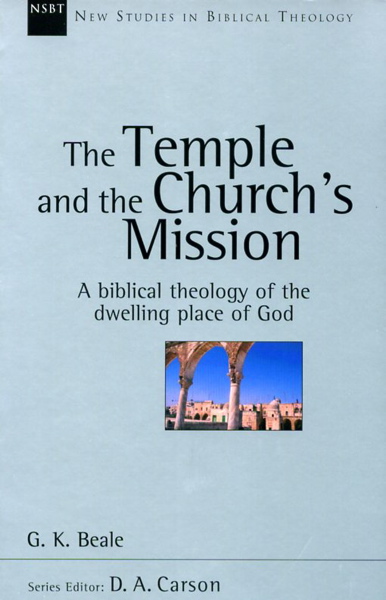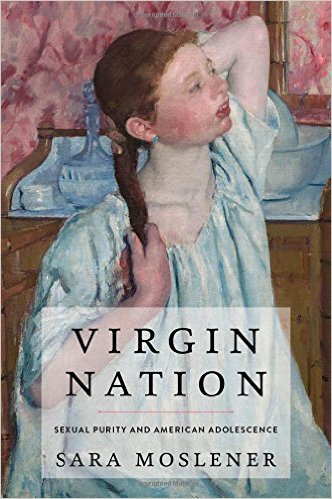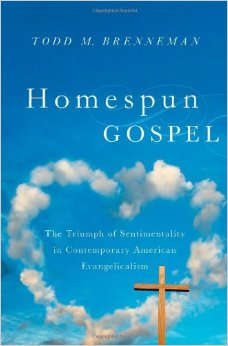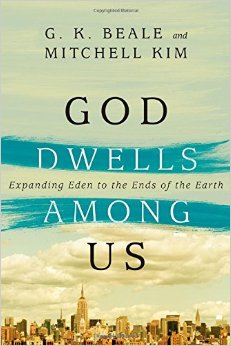Is There a Sweet Spot?

February 24, 2016
 Sometimes I find myself intellectually frustrated as both a reader and a writer. I have read a good number of academic books that I highly recommend to people, knowing they will never be cracked open. For example, Dr. Gregory Beale’s The Temple and the Church’s Mission has opened up huge doors for me in the way I read Scripture. But it is not an easy read and many just find it out of their league or intimidating. That frustrates me. Just because you may not understand everything you read the first time, it doesn’t mean you can’t benefit and grow from reading above your level. But so many readers do not want to put in that kind of work and perseverance through a book. They want to be spoon-fed. So they never benefit from a book like that.
Sometimes I find myself intellectually frustrated as both a reader and a writer. I have read a good number of academic books that I highly recommend to people, knowing they will never be cracked open. For example, Dr. Gregory Beale’s The Temple and the Church’s Mission has opened up huge doors for me in the way I read Scripture. But it is not an easy read and many just find it out of their league or intimidating. That frustrates me. Just because you may not understand everything you read the first time, it doesn’t mean you can’t benefit and grow from reading above your level. But so many readers do not want to put in that kind of work and perseverance through a book. They want to be spoon-fed. So they never benefit from a book like that. Another frustration is when I read academic books written on important topics regarding the evangelical subculture that will never be read by the ordinary people their particular topic affects. For example, Sara Moslener has written about the sexual purity movement and American adolescence. It is a great book to springboard discussion on an critical issue. But it’s purely academic, heavy on the data and completely lacking in helpful illustrations, commentary, proposed solutions, or applications that would help a reader engage more. It’s not exactly flying off the shelves.
Another frustration is when I read academic books written on important topics regarding the evangelical subculture that will never be read by the ordinary people their particular topic affects. For example, Sara Moslener has written about the sexual purity movement and American adolescence. It is a great book to springboard discussion on an critical issue. But it’s purely academic, heavy on the data and completely lacking in helpful illustrations, commentary, proposed solutions, or applications that would help a reader engage more. It’s not exactly flying off the shelves. Again, Todd Brenneman has written an academic book on American evangelicals being steeped in sentimentality over intellectual engagement that will never fall into the hands of those who may need to be challenged most by his work. We may not all equally agree on his conclusions, but the book challenges the evangelical community to a discussion that never makes it to takeoff. Of course, the scholarly work does need to be done to lay a foundation from which to build. But I am seeing a lot of academic foundations with little building into the world of ordinary people.
Again, Todd Brenneman has written an academic book on American evangelicals being steeped in sentimentality over intellectual engagement that will never fall into the hands of those who may need to be challenged most by his work. We may not all equally agree on his conclusions, but the book challenges the evangelical community to a discussion that never makes it to takeoff. Of course, the scholarly work does need to be done to lay a foundation from which to build. But I am seeing a lot of academic foundations with little building into the world of ordinary people.On the other hand, the world of popular level books is equally frustrating. Most of the bestsellers are full of error, or just very low theology. And many of the successful ones that are doctrinally correct and do reach a wider audience are lacking in theological depth. We can only spoon feed for so long. Continually processing theology to take out all the lumps does not develop good thinkers.
I’m not an academic. I’m a housewife theologian. But what is the point of the work academics are doing? Is it just to impress one another, keeping their research and learning within the walls of the academy? Will we ever make a difference that way? Particularly when it comes to theology, I would think the endgame is to have much of this knowledge trickle down into the homes of the ordinary Christian. One way to do that is through well-educated pastors. In addition to this, we need well-informed laypeople.
This is a challenge for both authors and readers. As an author, I often try to encourage readers in this way by citing works that are much better than my own, trying to make them more palatable to the non-academic. I don’t always do that well. It’s frustrating as I grow as a writer to be critiqued for being too meaty or not meaty enough. Of course my target is not an academic audience, but I do think that it would benefit academics to read more popular level books so they can better serve the church. I’m thankful for the ones who do, offering reviews and recommendations. This is one way to encourage and challenge both authors and readers.
As a blogger, I try to introduce books that a layreader may not have known about or considered. I aim to showcase books of all levels that are worthy to read, as well as pointing out popular books that are harmful.
 Back to Beale’s book, there is another way to address the issue. There is now a second book that he co-wrote with Mitchell Kim, God Dwells Among Us, that takes his previous work to a popular level audience. It still requires an informed reader who has moved past spoon-feeding. I like this. Both the authors and the readers are challenged to move out of their comfort zones to communicate and learn. I wish there were more books like this, co-written with the academic author for a popular level audience. Hopefully it will spur many readers to take on the original academic work as well.
Back to Beale’s book, there is another way to address the issue. There is now a second book that he co-wrote with Mitchell Kim, God Dwells Among Us, that takes his previous work to a popular level audience. It still requires an informed reader who has moved past spoon-feeding. I like this. Both the authors and the readers are challenged to move out of their comfort zones to communicate and learn. I wish there were more books like this, co-written with the academic author for a popular level audience. Hopefully it will spur many readers to take on the original academic work as well. I guess we can’t have a sweet spot without authors who want to communicate well with lay readers, and lay readers who will challenge themselves to be more informed. What books do you think hit the sweet spot well, connecting academic scholarship with the popular level genre for laypeople?




